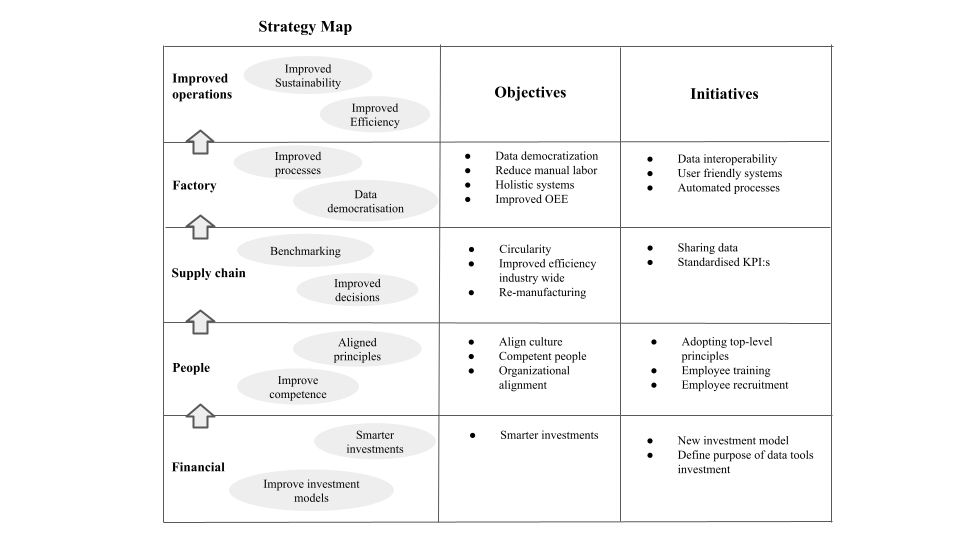Master thesis sponsored by funds from KTH Industrial Transformation Platform
KTH Industrial Transformation Platform sponsors project through the platform call. One of the project sponsored is the master thesis "Data-driven decision-making for efficient & sustainable production". Read about the project here.
Reinforce the collaboration within KTH researchers is important to the platform, Arvid and Simon’s work brought together department of sustainable production development (HPU) and industrial engineering and Management (INDEK). Their thesis work contributes highly to the research conducted under the Industrial Transformation platform research network, focusing on supporting industrial transition towards sustainable and CO2 neutral.
Students name: Arvid Broms and Simon Liljenberg Olsson, Industrial Engineering and Management (INDEK).
Thesis title: Data-driven decision-making for efficient & sustainable production.
Academic Supervisor: Pernilla Ulfvengren
Commissioner: Royal Institution of Technology
Contact persons: Zuhara Chavez and Mahesh Gopalakrishnan (HPU)
Data-driven decision-making for efficient & sustainable production
Today the manufacturing industry is in a transition towards more data-dependence, which include operational data in both processes and tools, but also data used in the long term strategic decisions that the manufacturers make. However, because of the rapid development of digitalization, companies are left blindfolded in the path towards smarter manufacturing which often leads to unsuccessful technological implementations. Therefore, the thesis will explore this problem by asking: What are the required initiatives for successfully implementing digital data-driven decision-making to improve efficiency and sustainability by Swedish manufacturing companies?
To answer the research question, we held semi-structured interviews with both experts in the field as well as a diverse set of manufacturers, to get a grasp of their view on challenges and possibilities with digital data-driven decision-making. Practitioners interviewed ranged from business developers, CEOs and chief operating officers at companies with over 50 thousand employees and 60 billion SEK in revenue to companies with 15 employees and revenue of 20 million SEK. The empirical findings were then compared to current literature to design a model in the form of a strategy map that could act as a practical guide for decision-makers at Swedish manufacturers.
Findings suggest that it is not always necessary for companies to implement technologies linked to large investments to enable digital data-driven decision-making. However, for those that do, there needs to be a clear organizational plan and agenda before executing the projects since they otherwise often lead to insufficient results. That means, the technology itself is often not the culprit in failed digital data-driven decision-making projects rather its unclear goals for the technology and organizational cultural aspects. Additional findings suggest that there are great promises with digital data-driven decision-making such as data-sharing between enterprises that have the potential of becoming a major aspect to reach world class manufacturing, industry wide, within the context of sustainability and efficiency.
Diva link: urn.kb.se/resolve?urn=urn:nbn:se:kth:diva-297504




